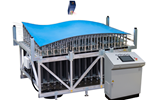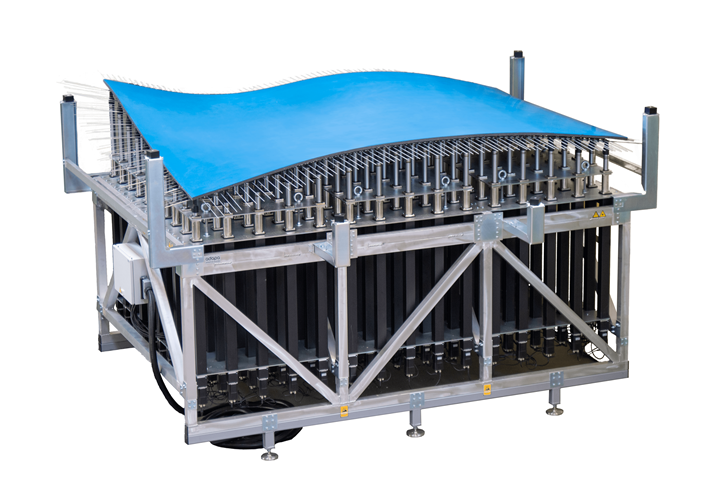Adapa announces Curve Works as new co-investor
Curve Works owner Dr. François Geuskens is taking a proactive management role as Adapa’s CTO to continue broadening the functionality, application of the company’s adaptive mold system.
Adapa A/S (Aalborg, Denmark), known for its reconfigurable mold system, has extended ownership of the group with composite material specialist Curve Work Holdings (Alphen aan den Rijn, The Netherlands), a new co-investor.
Curve Works Holding BV owners Dr. Tahira Ahmed and Dr. François Geuskens have built extensive knowledge of Adapa’s adaptive mold technology over the last seven years. Ahmed and Geuskens have used Adapa’s technology to pioneer new products and production technologies using composite and wood materials.
Geuskens expects to take a proactive role in Adapa’s management in his new position as chief technology officer (CTO).
“Having Francois on board will increase our competency to serve the growing composites market as well as broaden the functionality and application of our adaptive molds,” Adapa’s chairman of the board, Jens Broberg, notes.
Geuskens hopes to transform Adapa into a total solutions provider for customers that are investing in future-proof sustainable technologies. “The adaptive mold is, without a doubt, a key technology toward achieving their goal,” he says.
Related Content
-
Corebon induction heating
This sidebar to CW’s August 2024 feature article reviews this technology for more efficient composites manufacturing and why it aligns with Koridion active core molding.
-
ATLAM combines composite tape laying, large-scale thermoplastic 3D printing in one printhead
CEAD, GKN Aerospace Deutschland and TU Munich enable additive manufacturing of large composite tools and parts with low CTE and high mechanical properties.
-
Plant tour: BeSpline/Addcomp, Sherbrooke, QC, Canada
Composites automation specialist increases access to next-gen technologies, including novel AFP systems and unique 3D parts using adaptive molds.

















